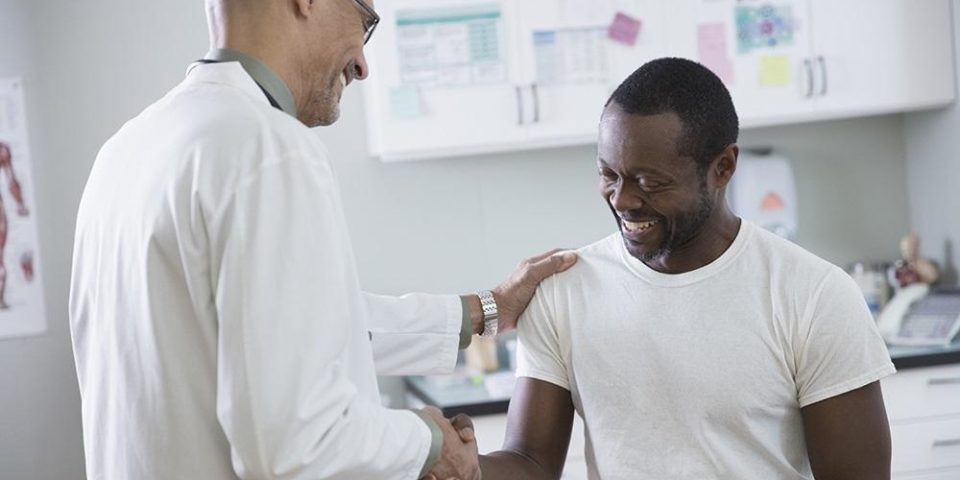Colorectal cancer: It’s not an older person’s disease
Colorectal cancer rates are rising in young people, but symptoms are often ignored. People under 50 may assume symptoms like rectal bleeding are simply related to hemorrhoids and only seek over-the-counter fixes. Or they might believe their abdominal pain is only gas or related to constipation. But these can be symptoms of colorectal cancer, the second leading cause of cancer deaths in the United States, and these symptoms should not be ignored.
“As a surgeon who sees firsthand the ramifications of a delayed diagnosis of colorectal cancer, I advocate patients, regardless of age, pay extra attention to symptoms,” said colorectal surgeon Cedrek McFadden, MD.
What symptoms should you look for?
Dr. McFadden said conversations about the signs and symptoms of colorectal cancer – especially in young people – need to happen, and they need to happen now. He shared what to look out for when it comes to colorectal cancer symptoms.
- Rectal bleeding
- Change in bowel habits
- Abdominal pain
- Unexplained weight loss
- Fatigue
How can you reduce your risk of colorectal cancer?
- Get to and stay at a healthy weight. Eat healthy and exercise regularly.
- Know your family history. Find out who in your family has been diagnosed with colon or rectal cancer and their age of diagnosis. It’s also important to know if you have a family history of other colon problems.
- Know your personal history. If you have a history of polyps or other digestive or bowel diseases, such as Crohn’s disease or colitis, you are at a higher risk for colorectal cancer. African Americans are also at a higher risk and experience a higher death rate from this specific cancer.
- Take symptoms seriously. There is no such thing as normal rectal bleeding. If you notice blood, a change in the color or size of your stool, a new pain or a change in your bowel habits, get checked by a doctor.
- Get screened. The American Cancer Society recommends a colonoscopy screening for colorectal cancer to begin at 45. If you have a family history of colorectal cancer, you should be screened earlier. Talk with your doctor about when to begin screening exams, ideally 10 years before the age of the diagnosis of your family member.
“If we pay attention to the initial signs and symptoms of colorectal cancer, in many cases we can find these cancers in their earlier stages, giving us a better chance at a cure,” said Dr. McFadden.
Early detection is the key to this disease – we can prevent this cancer by finding abnormalities sooner rather than later. It is important to have a primary care doctor to talk to if you experience any of these symptoms. “We want you to speak up. We want you to ask questions and be persistent about your health and the care you are receiving,” said Dr. McFadden.
Find a doctor
Whether you’re looking for a primary care physician or need to see a specialist, we’re here to help with experienced, compassionate care near you.
Find a Doctor

